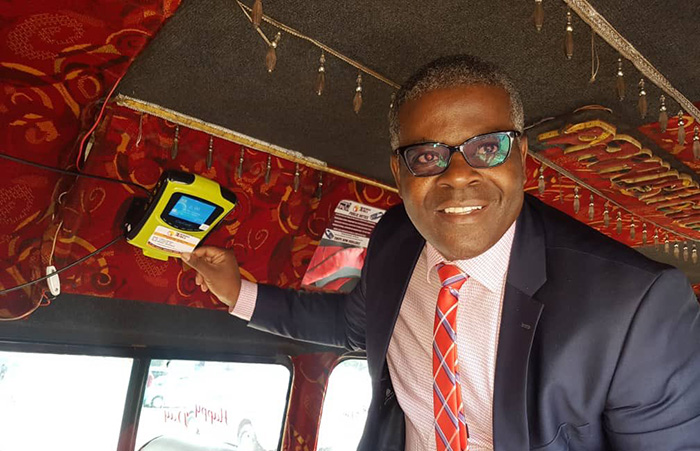Chasi demands $5m advanced to Chivayo
Energy and Power Development Minister Advocate Fortune Chasi has called on Zesa management to do everything to ensure that the $5 million advanced to Intratek Zimbabwe for the Gwanda Solar Project is recovered.

Minister Chasi said even if the courts have exonerated the company and its director Wicknell Chivayo, Government needs the money recovered at all cost.
“We want our $5 million back”, he said.
“When you pay money, either you get value for your money or you get the money back. It’s that simple. No dilly-dallying,” he is quoted saying by the ZimLive.com website.
“If you cause financial loss, wilfully or through negligence you’re liable. If there are people who were in ZESA who acted negligently, we would also want that money from them; these are public funds.”
Meanwhile Chivayo has responded is quoted saying; “all I can say is that against all odds, with the new pragmatic minister, success of the project is inevitable.
“The minister is a very senior advocate and level-headed politician of unquestionable integrity. When he’s fully briefed of the facts on the ground, he will come up with a conclusion based on an informed position.”
Chivayo was absolved of any criminal liability in the $5,6 million fraud charge involving Zimbabwe Power Company (ZPC)’s Gwanda solar project.
Mr Chivayo was facing three counts of fraud, while the other two counts of breaching Exchange Control regulations suffered a stillbirth, shortly before the trial commenced.
It was also the court’s finding that considering the circumstances of Mr Chivayo’s case, allowing prosecution or at worst his conviction would amount to violation of Section 42 of the Constitution, which provides protection upon the doctrine of sanctity of contracts while the judgment underscored that criminal sanctions would not apply in inherently civil cases as the present.
In his ruling, Justice Tagu noted that in the civil suit in which Chivayo won against ZPC, the complainant denied ever instituting criminal suit against the businessman and his company.
He said it is a pinnacle of criminal procedure that for a person to be competently charged and tried of a criminal offence, there should be a person (natural or juristic) who should complain of a criminal conduct of the accused.
“It invites confusion and uncertainty on how the State formulated the charges preferred against the accused persons if the known complainant has denied ever instituting the same,” he ruled.
“Apart from being suggestive of a skirmish, a mere witch hunt and a fishing expedition, it tells more of a hidden hand or mala fides intention in the institution of the criminal proceedings brought about by the State in the circumstances.”
Justice Tagu also noted that two different judges of the same court in separate sittings and dealing with different issues, but relating to a similar cause of action concurred on the lack of merit in the criminal case.
This, he said, was no coincidence.
“Rather, it demonstrates the extent of common acceptance that the criminal case is at best…, a high sounding nothing,” said Justice Tagu.
He said the charges, which arose from a civil dispute and incapable of being resolved through the criminal justice system, were contrived and properly excepted to.
“The relationship between the complainant and both applicants is contractual therefore any remedy for a dispute arising therefrom should be a civil and in terms of the contract.
“The State cannot be enjoined through the apparatus of the criminal justice system to determine contractual obligations,” he said.
The facts, said the judge, did not disclose any criminal offence.
“It seems compelling that having a civil matter determined by the State through the criminal justice system is not only wrong but sets a dangerous precedent if not tamed at its inception,” he ruled.
“This approach bears the greater danger of opening every commercial transaction to criminal liability, a situation that may degenerate into chaos if left to prowl freely.”
The judge added that if the courts allowed such prosecutions to occur in this country, no investor would open themselves to the extreme exigencies of having the fate of their investment determined by a criminal court where, inter alia, the standard of evidence should be beyond reasonable doubt.






